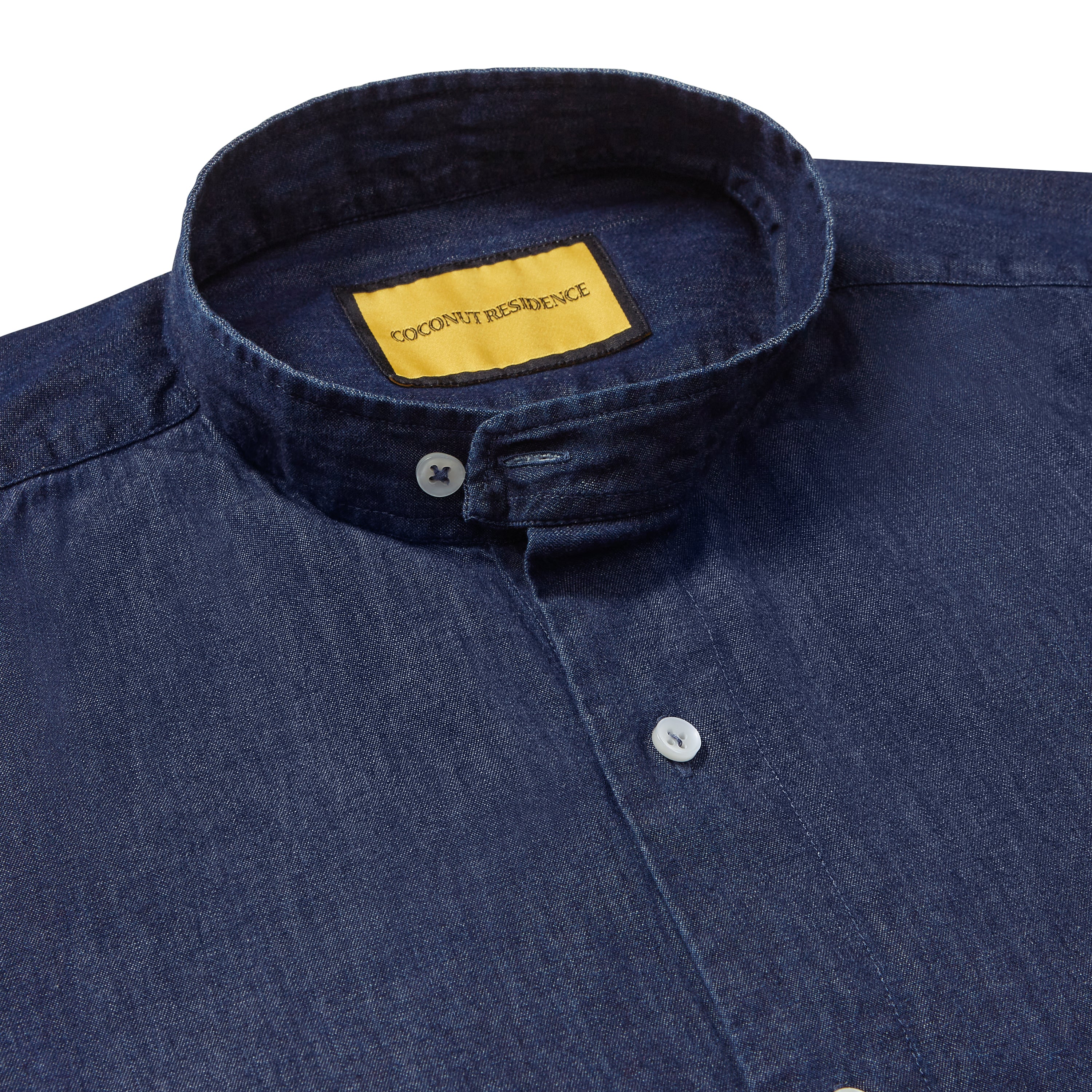

Denim Shirt Grandad Collar Pondicherry Indigo Cotton
Studio Notes
Denim is usually defined by its indigo-coloured warp thread and white weft thread. When designing our Indigo denim shirt, we wanted to create something versatile enough to be worn at anytime of the year and for many years. The right denim shirt has the ability to give the appearance of being both casual and practical, whilst also pairing elegantly with tailoring.
The Greek word indigo gives its origin away: it simply means 'the Indian' or 'from India'. The rare commodity blue dye derived from the 'Indigofera' plant, which is also indigenous to the tropical climates of West Africa (in particular Nigeria and Mali) has been used for thousands of years to dye clothes and fabrics.
Our premium cotton denim is produced by a third generation family business dating back to the 1930s, based in Puglia, Southern Italy.
In order to create a shirt perfectly balanced for the modern wardrobe opted for a 225gsm/3x1 twill, using a traditional treatment of stone washing, historically using pumice stones to give a desirable finish. The wash not only allows for a measure of consistency, but also allows the shirt to develop a further and unique patina over time.
The Pondicherry Indigo shirt pattern has been developed to blend a slightly tailored yet relaxed fit and is a part of our unisex offering. The back is darted to enhance shape and a longer, curved hem allows a more comfortable fit when tucked in or worn un-tucked. Each shirt has been hand cut and produced following an eighteen step manufacturing process in Tuscany.
We use Indonesian mother of pearl buttons on the front placket and cuffs.
A perfect option for a staple and versatile shirt, whether that is working from home or away. Pair with our Sanskrit Signature Sweatshirt or our Zero-Waste Harlesden Crewneck.
Origin: Tuscany, Italy
Content: 100% Cotton-Denim, Mother of Pearl buttons from Indonesia
Choose options

